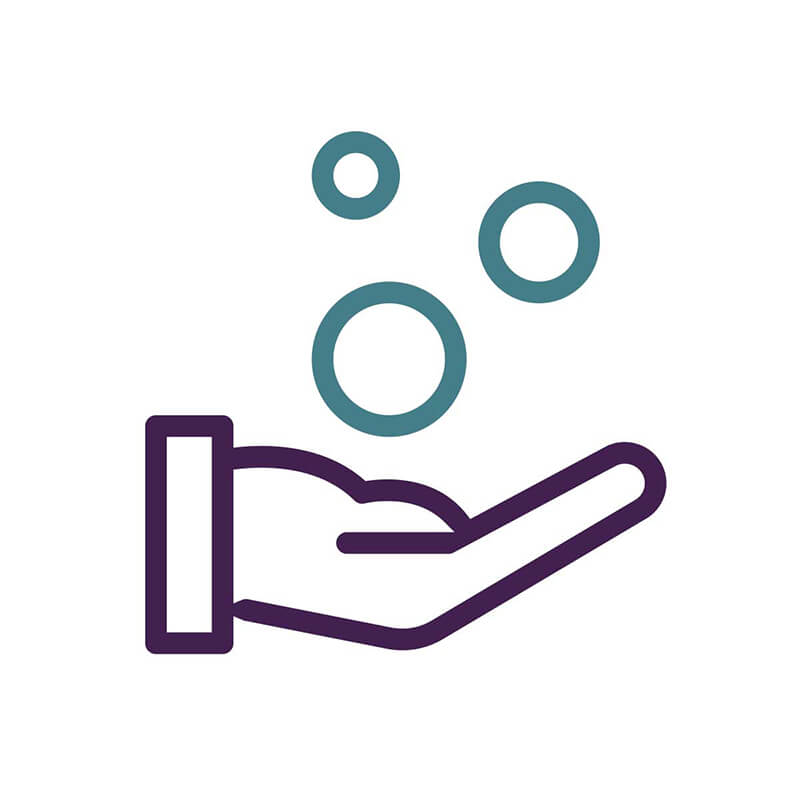When someone is ill

Download the When someone is ill guide
(PDF 1.95MB)
A guide to your finances if you fall ill and can’t work
If you fall ill and have to stop work for a period of time or altogether, you may have problems making ends meet. If you are employed, you are usually entitled to Statutory Sick Pay for up to 28 weeks and possibly extra sick pay from your employer. If you are self-employed, you will have to rely on state benefits and any savings you have.
You can navigate through the guide using the table of contents, or if you'd like to read the guide end-to-end in full, you can download a PDF copy.

Your income
To qualify for Statutory Sick Pay (SSP) you have to be classed as an employee, earn a minimum amount on average per week and have been off work for four or more days in a row.
Many employers offer their own sick pay scheme which is more generous than this. You can find out more from your employer or check your employment contract.
There are also state benefits you can apply for. If you have paid or received National Insurance contributions in the last two years you can apply for Employment and Support Allowance or Universal Credit. If you are self-employed you should apply for state benefits straight away as you will not receive SSP.
You can use a benefits calculator to help you find out what state benefits you may be entitled to (see Where to get help for details). If you are disabled or need care there are other benefits available such as the Personal Independence Payment.
Assistance from other organisations
You may be eligible for support from your local council. This could include help with shopping, cleaning, personal care and day-to-day tasks. Your council may also provide special equipment to help with your illness or impairment and it may pay for small adaptations to your home (like handrails on your bath). You need to contact your council for a care needs assessment and it may also be able to help with your Council Tax.
There are also various schemes to help with transport costs from both central and local government.
If you have a specific illness there may be an organisation that can provide you with support and information on what financial help might be available. For example, if you are affected by cancer MacMillan Cancer Support has lots of information on what benefits you can apply for, getting help with your housing costs and managing your money.

Insurance
You may have insurance which will pay out a lump sum or a regular income if you fall ill. This can include:
- Income protection insurance which pays you an income if you have to stop work due to illness or an accident. This typically pays you 50% of your salary and depending on the policy can pay out until you reach retirement age.
- Payment protection insurance (which is also called accident, sickness and unemployment cover) which is taken out to cover the repayments on a particular loan if you fall ill, have an accident or lose your job. The types of loan you may have taken this out for include a bank loan or credit card.
- Mortgage payment protection insurance which covers your mortgage repayments if you have an accident, are made redundant or fall ill and have to stop work.
- Critical illness insurance which provides you with a lump sum if you are diagnosed with a critical or terminal illness named on your policy. The illness does not necessarily have to result in you having to stop work for good.

Your spending
Your income is likely to fall if you have to stop work due to ill health. To make sure your money goes as far as you need it to it’s a good idea to review your spending. You could start by making a list of all the things you have to pay for. Prioritise your bills and any other essentials such as food. Next think about the other things you spend money on. Keeping a spending diary is a good way to keep track of where your money goes.
Once you have a full list of all your spending think about how this might change now that you have stopped work. For example, while you may no longer have to pay to get to work and for lunches, your heating bills may go up if you are at home more.
If you need to cut back there may be some obvious savings you can spot in your budget. You may also be able to cut some of your bills by switching to cheaper utility and broadband suppliers.

Dealing with debts
You may be worried about keeping up with the repayments on any debts or loans you have. Here are five steps to help you.
Step one: Make a list of all your debts including details of the outstanding balances and how much you pay each month.
Step two: Claim on any payment protection insurance you have taken out for these. If you’re not sure if you have insurance for say a loan, ask your lender.
Step three: Prioritise your remaining debts. Priority debts are ones which have serious consequences if you don’t pay them. For example, if you don’t pay your mortgage or rent you could lose your home, if you don’t pay utility bills you could be cut off. Non-priority debts are things like credit card bills, bank overdrafts and catalogue debts where the consequences for non-payment are not as serious as with priority debts.
Step four: Work out your budget and see how much you have available for paying off your debts more quickly once you’ve paid for your essentials such as household bills, your living expenses and any repayments and interest on anything you owe.
Step five: Start paying off your priority debts first. If you have difficulty doing this or would like further help, there are a number of free debt organisations you can contact.
Where to get help
For information on which state benefits you or someone who cares for you might be entitled to use a benefits calculator:
For information on Statutory Sick Pay:
For information on disability and sickness benefits:
- GOV.UK disability and sickness benefits
- Help from Citizens Advice on disability and sickness benefits
To find out about help from your local council:
For free debt advice:
- Citizens Advice or contact your local bureau
- National Debtline or call the debtline on 0808 808 4000
- It has a useful booklet ‘How to deal with debt’ (PDF)
- StepChange or call the helpline on 0800 138 1111.





